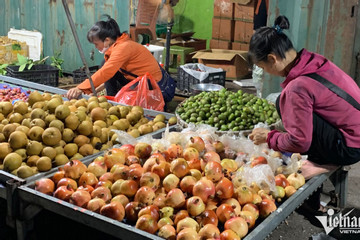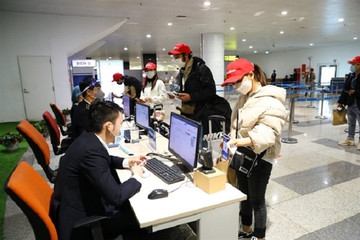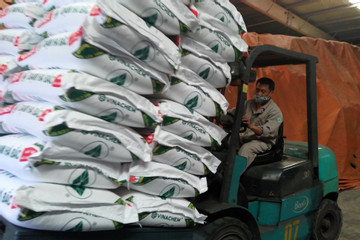- © Copyright of Vietnamnet Global.
- Tel: 024 3772 7988 Fax: (024) 37722734
- Email: evnn@vietnamnet.vn
vietnam's tax policies
Update news vietnam's tax policies
Fines issued on 764 violations in e-commerce total VND12 billion in 2023
The Ministry of Industry and Trade (MoIT) revealed that there were 764 violations in e-commerce with a total fine of VND12 billion (US$ 471,601) in 2023.
Vietnam to prohibit those with unpaid taxes from leaving country
Vietnamese authorities will crack down on tax evasion by implementing strict measures to ensure that individuals and businesses fulfill their tax payment obligations.
Proposal to amend personal income tax law set for October next year
Minister of Finance Ho Duc Phoc said that the ministry is currently conducting a review and assessment of tax laws, including the Personal Income Tax Law.
Tax, land rent payment deadlines to be extended this year
Payment deadlines for value added tax (VAT), corporate income tax, personal income tax, and land rent in 2024 are set to be extended, involving a total tax value of nearly 84 trillion VND (3.3 billion USD).
Ministry proposes tax filing deadline extension for 2024
The ministry hopes the move could ease some business challenges and provide more support for business operations.
Govt proposes extending 8% VAT until end-2024
The Government has proposed extending the 8% value-added tax (VAT) on certain goods and services until the end of 2024.
Special consumption tax can hurt beverage industry
Vice chairman of the Vietnam Association of Financial Investors (VAFI) Nguyen Hoang Hai said that paying additional tax will erode Vietnamese beverage makers’ competitive advantages.
Personal-income tax regime unreasonable, but will remain until 2026
Under the current PIT law, wageworkers have to pay PIT if they have monthly income of VND11 million or more. But freelancers with incomes of tens of millions of dong do not pay this tax because their incomes are not identified by taxation agencies.
18 leaders of businesses owing taxes not permitted to exit the country
These business owners are owing hundreds of billions of Vietnamese Dong in taxes, the Tax Department of Binh Phuoc Province said.
Finance ministry expected to impose 50% duty on e-cigarettes
Vietnam has one of the highest smoking rates in the world, with 38.9% of males over the age of 15 being smokers.
Tax sector to tighten management for e-commerce activities
The booming development along with many new forms of e-commerce in recent years has posed new challenges for tax management authorities.
E-commerce vendors likely banned from exiting Vietnam over tax debts
Tax authorities in Vietnam are considering stringent measures against vendors on e-commerce platforms who have not fulfilled their tax obligations, including the possibility of prohibiting them from leaving the country.
Vietnam considers imposing 5% VAT on fertilizers
The Ministry of Finance in Vietnam has proposed a 5% value-added tax (VAT) for fertilizers, a departure from the current tax-exempt status outlined in the Value-Added Tax Law.
VAT to be reduced by 2% from January 1
The value-added tax (VAT) for most of goods and services will be cut by 2% from January 1, 2024.
Tax target met early this year
The General Department of Taxation reported this year’s tax revenue at VNĐ1,396 quadrillion (US$57 trillion), exceeding the target by 1.7 per cent as 29 out of 63 localities across the country have completed their 2023 tax estimates.
At least 20% of compliance costs related to business activities to be cut
The General Department of Taxation (GDT) has said that it guaranteed to reduce and simplify at least 20% of regulations and cut at least 20% of compliance costs related to business activities and eliminate unnecessary regulations by 2025.
Over 1 billion USD of tax arrears collected
As of the end of July, the tax sector collected a total of 25.608 trillion VND (1.06 billion USD) in tax arrears, reported the General Department of Taxation.
VN tax authorities to make e-invoicing a common practice
Vietnam’s tax authorities are working to make e-invoicing a common practice among business establishments nationwide as e-invoices generated from cash registers (ECR) make tax collection more efficient and manageable.
Domestic products are taxed higher than imports
The Vietnam Confederation of Commerce and Industry (VCCI) says that domestically manufactured products bear a higher VAT (value added tax) higher than imports, and are thus placed at a disadvantage.
Game firms are no longer flourishing in Vietnam
The gaming industry, unable to buy foreign games to distribute domestically because foreign partners are allowed to distribute games in Vietnam, does not expect a bright future.



















